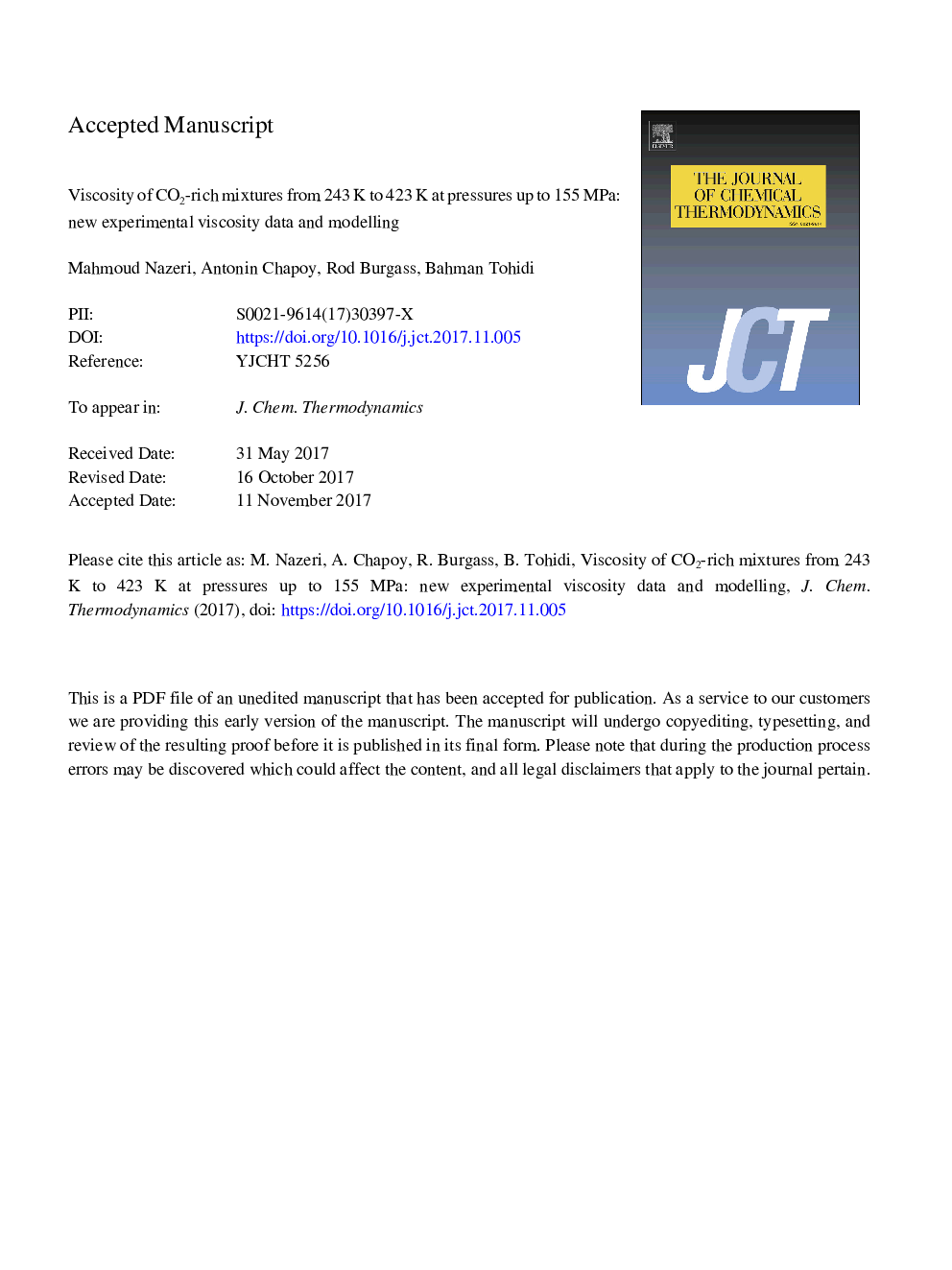| کد مقاله | کد نشریه | سال انتشار | مقاله انگلیسی | نسخه تمام متن |
|---|---|---|---|---|
| 6659849 | 1426195 | 2018 | 52 صفحه PDF | دانلود رایگان |
عنوان انگلیسی مقاله ISI
Viscosity of CO2-rich mixtures from 243â¯K to 423â¯K at pressures up to 155â¯MPa: New experimental viscosity data and modelling
دانلود مقاله + سفارش ترجمه
دانلود مقاله ISI انگلیسی
رایگان برای ایرانیان
کلمات کلیدی
موضوعات مرتبط
مهندسی و علوم پایه
مهندسی شیمی
مهندسی شیمی (عمومی)
پیش نمایش صفحه اول مقاله

چکیده انگلیسی
The viscosities of three multi-component CO2-rich mixtures were measured using the classical capillary tube technique. The tests were conducted at pressures from 1 to 155â¯MPa at various temperatures from 243 to 423â¯K in the gas, liquid and supercritical regions. Correlative and predictive models were evaluated using the measured experimental viscosity data. The correlative model, i.e., Lohrenz-Bray-Clark (LBC) model, was tuned to match the experimental data (CO2-LBC after tuning) and predictive models were modified by replacing the reference fluids. The predictive models in this work are based on the corresponding states (CS) theory models. The one reference fluid corresponding states model is the model originally developed by Pedersen which was modified by changing the reference fluid from methane to CO2 (called hereafter to CO2-Pedersen); two reference fluid corresponding states model is the Aasberg-Petersen (CS2) approach which was modified by selecting CO2 as reference fluid for CO2-rich fluids instead of n-decane which is suitable for hydrocarbons (CO2-CS2 model). The SUPERTRAPP predictive model, based on the extended corresponding states (ECS) theory, was also modified by changing the reference fluid propane to carbon dioxide (CO2-SUPERTRAPP). Comparisons for the investigated mixtures show that the overall Absolute Average Deviation (AAD) for the CO2-Pedersen, CO2-SUPERTRAPP, CO2-CS2 and CO2-LBC are 3.8%, 4.6%, 5.3% and 9.2%, respectively. Overall, the CO2-Pedesen viscosity model is the most accurate model when predicting the viscosity of the investigated CO2-rich mixtures. As the viscosity is a function of density, the effect of the mixture density on the mixture viscosity was investigated. Also, the viscosity reduction of pure CO2 due to the presence of impurities in each system was demonstrated.
ناشر
Database: Elsevier - ScienceDirect (ساینس دایرکت)
Journal: The Journal of Chemical Thermodynamics - Volume 118, March 2018, Pages 100-114
Journal: The Journal of Chemical Thermodynamics - Volume 118, March 2018, Pages 100-114
نویسندگان
Mahmoud Nazeri, Antonin Chapoy, Rod Burgass, Bahman Tohidi,